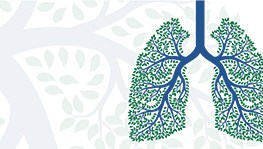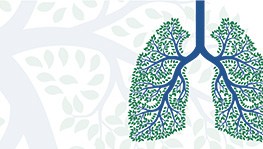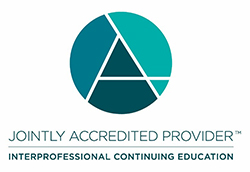
Slides

A Practical Guide to Rehabilitation in Multiple Sclerosis: 2nd Edition
Activity Info
Rehabilitation is an integral part of comprehensive multiple sclerosis (MS) care. This highly interactive ePrimer is designed to equip the multidisciplinary rehab team with practical, evidence-based information they can use to optimize the benefits derived from rehab services for their patients with MS. The content is augmented with faculty commentary to listen to, patient cases to follow, and a patient education guide providing strategies and tools that can aid increased communication between clinician and patient. Learners can receive AMA, MOC, and CNE credit for participation.CME/CE INFORMATION
TERMS OF CREDIT
Release Date: 9/30/2019
Expiration Date: 9/29/2020
ESTIMATED TIME TO COMPLETE
120 minutes
ACTIVITY OVERVIEW
This highly interactive ePrimer is designed to equip clinicians with practical, evidence-based information they can use to optimize the benefits derived from rehabilitative services for their patients with multiple sclerosis (MS). Readers will find strategies and tools that can aid increased collaboration and communication between disciplines, as well as between clinician and patient.
COPYRIGHT STATEMENT
© 2019 The France Foundation.
GRANT STATEMENT
This activity is supported by an educational grant from Mallinckrodt Pharmaceuticals and Sanofi Genzyme.
NEEDS ASSESSMENT
There is a well-documented need for rehabilitation services in the management of functional changes related to MS since these affect patient independence and overall quality of life. It is essential that MS rehabilitation specialists develop individualized plans that address the patient’s functional status and safety. As MS care involves a multi-disciplinary team, there is a need for ongoing communication between all members of the management team, as well as the patient and his or her family.
LEARNING OBJECTIVES
Upon completion of the activity, participants should be able to:
- Identify MS symptoms causing functional impairments that require specialized assessments and interventions by rehabilitation specialists to facilitate appropriate interventions and patient and family education
- Use evidence-based assessment techniques and functional outcome measures that can establish baseline function for a range of symptoms that affect functionality (mobility, speech, cognition, fatigue
- Using appropriate assessment strategies, distinguish between fluctuations in symptoms versus relapses and/or progression
- Identify evidence-based, targeted interventions to promote maximal functional status and safety
- Summarize key characteristics of and considerations related to pharmacologic agents that address symptoms and can aid mobility, speech, or other specific symptoms
- Adjust rehabilitative interventions to accommodate for fluctuating or ongoing MS symptoms
- Incorporate specific strategies and tools that facilitate communication between all members of the MS care team
- Incorporate specific strategies and tools, including shared-decision making (SDM), that can facilitate communication between clinician and patient
TARGET AUDIENCE
This activity is intended for rehabilitation clinicians such as physiatrists, occupational therapists, physical therapists, speech language pathologists, nurses, neurologists, PAs, and NPs involved in the rehabilitation of patients with MS.
FACULTY
Susan Bennett, PT, DPT, EdD, NCS, MSCS
Board Certified Specialist in Neurologic Physical Therapy
Clinical Professor, Rehabilitation Science, Neurology and Neurosurgery
University at Buffalo, SUNY
Buffalo, New York
Patty Bobryk, MHS, PT, MSCS, ATP
University of Colorado Health, Yampa Valley Medical Center
Steamboat Springs, Colorado
Carolyn Knoechel, MSc, SLP, R.SLP
Speech Language Pathologist
Calgary, Alberta, Canada
Anjali Shah, MD
Associate Professor, Physical Medicine and Rehabilitation
UT Southwestern Medical Center
Dallas, Texas
Christine Smith, OTR/L, MSCS
Holy Name Medical Center
Teaneck, New Jersey
ACCREDITATION AND CREDIT INFORMATION
In support of improving patient care, this activity has been planned and implemented by the Consortium of Multiple Sclerosis Centers (CMSC), the American Academy of Physical Medicine and Rehabilitation (AAPM&R), and The France Foundation. CMSC is jointly accredited by the Accreditation Council for Continuing Medical Education (ACCME), the Accreditation Council for Pharmacy Education (ACPE), and the American Nurses Credentialing Center (ANCC) to provide continuing education for the healthcare team.
PHYSICIAN CREDIT
The CMSC designates this enduring material for a maximum of 2.0 AMA PRA Category 1 Credits™. Physicians should claim only the credit commensurate with the extent of their participation in the activity.
ABPMR MOC II Self-Assessment Credit
Physiatrists who successfully complete this CME activity, including participation in the evaluation component, may earn up to 2.0 MOC II Self-Assessment credits towards the American Board of Physical Medicine and Rehabilitation (ABPMR) Maintenance of Certification (MOC) requirements. Participants will earn MOC Part II self-assessment points equivalent to the amount of CME credits claimed for the activity. The American Academy of Physical Medicine & Rehabilitation (AAPM&R) will submit these credits directly to ABPMR for all individuals who claim their CME credit.
NURSE CREDIT
The CMSC designates this enduring material for 2.0 contact hours of continuing education (None in the area of pharmacology).
CERTIFICATE OF COMPLETION
A Certificate of Completion may be given upon completion of course requirements enabling you to register your credit with the appropriate licensing boards or associations. You may apply for other accreditations using the procedure established by the specific organization.
SET OFF LABEL STATEMENT
The Consortium of Multiple Sclerosis Centers (CMSC), the American Academy of Physical Medicine and Rehabilitation (AAPM&R), and The France Foundation (TFF) require CME/CE faculty (speakers) to disclose when products or procedures being discussed are off-label, unlabeled, experimental, and/or investigational, and any limitations on the information that is presented, such as data that are preliminary, or that represent ongoing research, interim analyses, and/or unsupported opinion. Faculty in this activity may discuss information about pharmaceutical agents that is outside of US Food and Drug Administration approved labeling. This information is intended solely for continuing medical education and is not intended to promote off-label use of these medications. CMSC, AAPM&R, and TFF do not recommend the use of any agent outside of the labeled indications. If you have questions, contact the Medical Affairs Department of the manufacturer for the most recent prescribing information.
DISCLOSURES
The planners, reviewers, editors, staff, CME committee, or other members at the Consortium of Multiple Sclerosis Centers, the American Academy of Physical Medicine and Rehabilitation, and The France Foundation who control content have no relevant financial relationships to disclose.
The faculty listed below report that they have no relevant financial relationships to disclose:
- Susan Bennett, PT, DPT, EdD, NCS, MSCS
- Patty Bobryk, MHS, PT, MSCS, ATP
- Carolyn Knoechel, MSc, SLP, R.SLP
- Anjali Shah, MD
- Christine Smith, OTR/L, MSCS
METHOD OF PARTICIPATION / HOW TO RECEIVE CREDIT
- There are no fees for participating in and receiving credit for this activity.
- Review the activity objectives and CME/CE information.
- Complete the CME/CE activity
- Complete the online posttest. A score of at least 75% is required to successfully complete this activity. The participant may take the test until successfully passed.
- Complete the CME/CE evaluation/attestation form, which provides each participant with the opportunity to comment on how participating in the activity will affect their professional practice; the quality of the instructional process; the perception of enhanced professional effectiveness; the perception of commercial bias; and his/her views on future educational needs.
- Credit documentation/reporting:
- Your CME/CE certificate will be available for download.
- If you are requesting ABPMR MOC credit, a record of your completion will be sent to AAPM&R, who will submit your completion to ABPMR as documentation of completing MOC II self-assessment credits. Please allow 2-4 weeks.
Tags
Primary Care | Neurology | Neuromuscular Specialist | Pediatrics | Psychiatry/Mental Health | 3.0 - 180 mins | Primer/Supplements | Family Medicine | Nurse | Nurse Practitioner | Multiple Sclerosis | Physical Medicine & Rehabilitation | Neuropsychology | cmeAIMS.org | Online |







